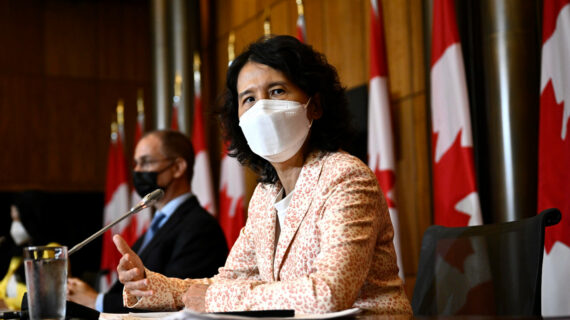Recent events have shone a bright light on the unauthorised disclosure of classified information in Canada. While one person’s glory-seeking malcontent is another’s noble whistleblower, much has been made of the risk taken by those who have spoken to media about classified matters—and possibly even permitted journalists to read classified material.
In Canada, not all classified information is created equal, nor are the consequences for divulging that information all the same. Ranging from information which is Protected (the release of which would be injurious to an individual) to Top Secret material containing Special Operational Information (the kind of information that, if leaked, could reveal identities, methods, and plans related to intelligence and military operations), Canada’s information classification system is broad, misunderstood, and often misapplied—even within government where “over-classification” is common.
The Criminal Code
In terms of offences under Canada’s Criminal Code, only one is directly applicable: s. 122. But to find unauthorized disclosure under this section, a judge would have to rule that the leaked information was itself property, provided under circumstances in which a trust (i.e., a duty to hold the information in confidence) existed, and the accused received a benefit from the disclosure.
The Security of Information Act
It is more likely that a prosecutor would bring a case under a law designed to govern the particular circumstances of leaking a document: the Security of Information Act (SOIA). There are three relevant offences under that law:
- Wrongful communication of a secret article, note, document, or information (s. 4 of SOIA);1Punishable pursuant to s. 27. May proceed by indictment subject to imprisonment of a term of up to 14 years or by summary conviction and then punishable by a term of imprisonment of not more than 12 months, a fine of not more than $2,000, or both.
- Intentional unauthorized communication or confirmation, by a person permanently bound to secrecy, of information that, if it were true, would be special operational information; (s. 13) and/or,2Punishable pursuant to s. 13(3). Indictable offence subject to imprisonment for a term of up to five years less a day.
- Intentional unauthorized communication or confirmation, by a person permanently bound to secrecy, of special operational information (s.14).3Punishable pursuant to s. 14(2). Indictable offence subject to imprisonment for a term of up to 14 years.
Special Operational Information (SOI) is defined in s. 8(1). It includes, among other types of information:
- The identity of a source of information or intelligence
- Methods and capabilities of collection, analysis, reporting or communication of information
- Whether a person or place was or is intended to be the target of covert collection of information or intelligence.
A person permanently bound to secrecy under SOIA s. 8(1) includes:
- Employees of, among others, the following agencies:4See Schedule to Security of Information Act.
- Canadian Security Intelligence Service
- Communications Security Establishment
- Privy Council Office Foreign and Defence Policy Secretariat, Intelligence Assessment Secretariat, and, Security and Intelligence Secretariat
- National Security and Intelligence Review Agency Secretariat
- Secretariat of the National Security and Intelligence Committee of Parliamentarians
- Individuals designated by a deputy head, pursuant to s. 10(1) of SOIA, as being permanently bound to secrecy.
As such, it really matters what the precise nature of the information released really was and who did the leaking. If it was SOI, the penalty could be severe. But in all other instances, lesser punishments—or no punishment at all beyond losing one’s job—might be the outcome. Of course, all of this presupposes that a leaker can be caught. The reality for anyone who has tried to catch a leaker is that it’s a bit like catching a witch: success is very elusive and the effort produces a lot of collateral damage.

What about those who leak ‘in the public interest’?
A person charged with disclosing SOI may claim the disclosure was in the public interest. But that defence is only available under limited circumstances. The leaker must be acting for the purpose of disclosing an offence under an act of Parliament and the public interest in disclosure must outweigh the public interest in non-disclosure. More importantly, the defence is only available if the leaker has:
- brought the information to the attention of his Deputy Head or the Deputy Attorney General; or
- brought the information to the National Security and Intelligence Review Agency.
Most unauthorized disclosures will not involve SOI. They will instead involve an unauthorized disclosure of a secret article, note, or document. This type of disclosure will lead to a charge of a breach of s. 4 of SOIA. And unfortunately for the leaker, the public interest defence is not available to a person charged under this section.
The information contained in the stories written by Messrs. Fife and Chase regarding Chinese influence operations is likely covered by s. 4 of SOIA. There does not appear to have been any disclosure of SOI. It is therefore unlikely that the public interest defence would be available to that source.
The information contained in the stories written by Mr. Cooper may be SOI. It is plausible that the disclosure of information contained in these sources could reveal methods or capabilities of collection and analysis or the individual targets of a particular operation. If this threshold is met, then Mr. Cooper’s source may be able to use the public interest defence if that person took steps to bring the alleged breach of an act of Parliament (probably of the Elections Act) to the attention of the appropriate Deputy Head or NSIRA.
Leaking can be a perilous exercise, both for the leaker and the country. But punishment is not a certain thing. Experience teaches that even if an applicable law has been broken, catching a leaker can be an exercise in futility. That doesn’t mean it’s not worth pursuing, but a strong Plan B is required—one that weighs and measures how and why the leak occurred in the first place.




